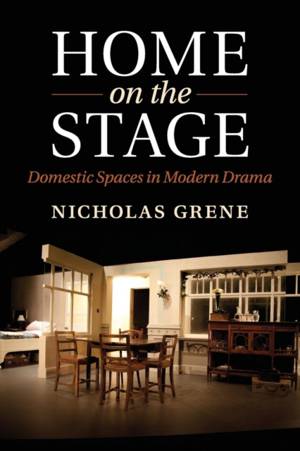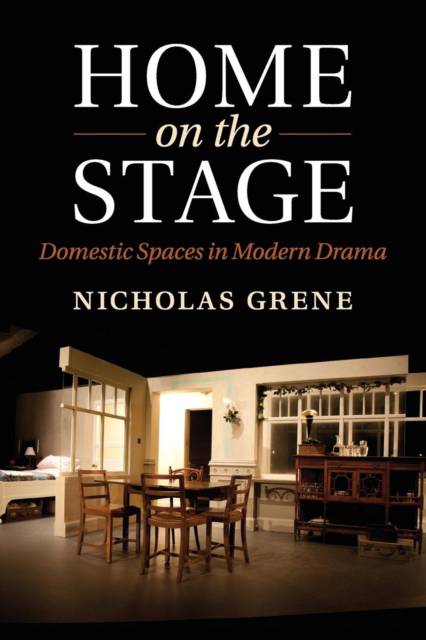
Bedankt voor het vertrouwen het afgelopen jaar! Om jou te bedanken bieden we GRATIS verzending (in België) aan op alles gedurende de hele maand januari.
- Afhalen na 1 uur in een winkel met voorraad
- In januari gratis thuislevering in België
- Ruim aanbod met 7 miljoen producten
Bedankt voor het vertrouwen het afgelopen jaar! Om jou te bedanken bieden we GRATIS verzending (in België) aan op alles gedurende de hele maand januari.
- Afhalen na 1 uur in een winkel met voorraad
- In januari gratis thuislevering in België
- Ruim aanbod met 7 miljoen producten
Zoeken
€ 64,95
+ 129 punten
Uitvoering
Omschrijving
As a serious drama set in an ordinary middle-class home, Ibsen's A Doll's House established a new politics of the interior that was to have a lasting impact upon twentieth-century drama. In this innovative study, Nicholas Grene traces the changing forms of the home on the stage through nine of the greatest of modern plays and playwrights. From Chekhov's The Cherry Orchard through to Williams' A Streetcar Named Desire, domestic spaces and personal crises have been employed to express wider social conditions and themes of class, gender and family. In the later twentieth century and beyond, the most radically experimental dramatists created their own challenging theatrical interiors, including Beckett in Endgame, Pinter in The Homecoming and Parks in Topdog/Underdog. Grene analyses the full significance of these versions of domestic spaces to offer fresh insights into the portrayal of the naturalistic environment in modern drama.
Specificaties
Betrokkenen
- Auteur(s):
- Uitgeverij:
Inhoud
- Aantal bladzijden:
- 254
- Taal:
- Engels
Eigenschappen
- Productcode (EAN):
- 9781107434998
- Verschijningsdatum:
- 8/02/2018
- Uitvoering:
- Paperback
- Formaat:
- Trade paperback (VS)
- Afmetingen:
- 152 mm x 229 mm
- Gewicht:
- 344 g

Alleen bij Standaard Boekhandel
+ 129 punten op je klantenkaart van Standaard Boekhandel
Beoordelingen
We publiceren alleen reviews die voldoen aan de voorwaarden voor reviews. Bekijk onze voorwaarden voor reviews.









